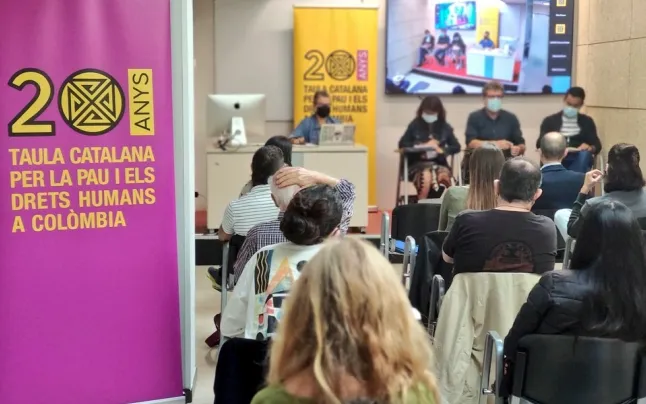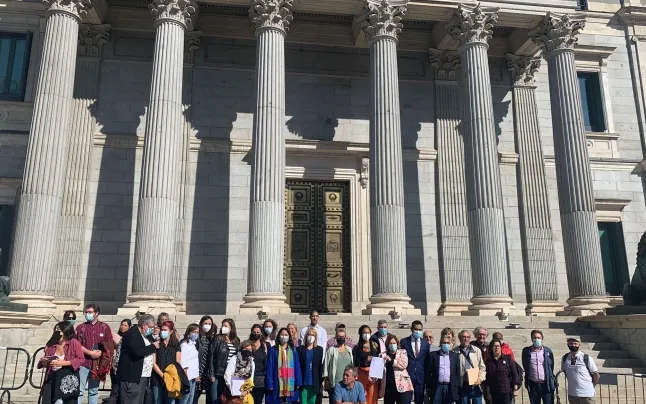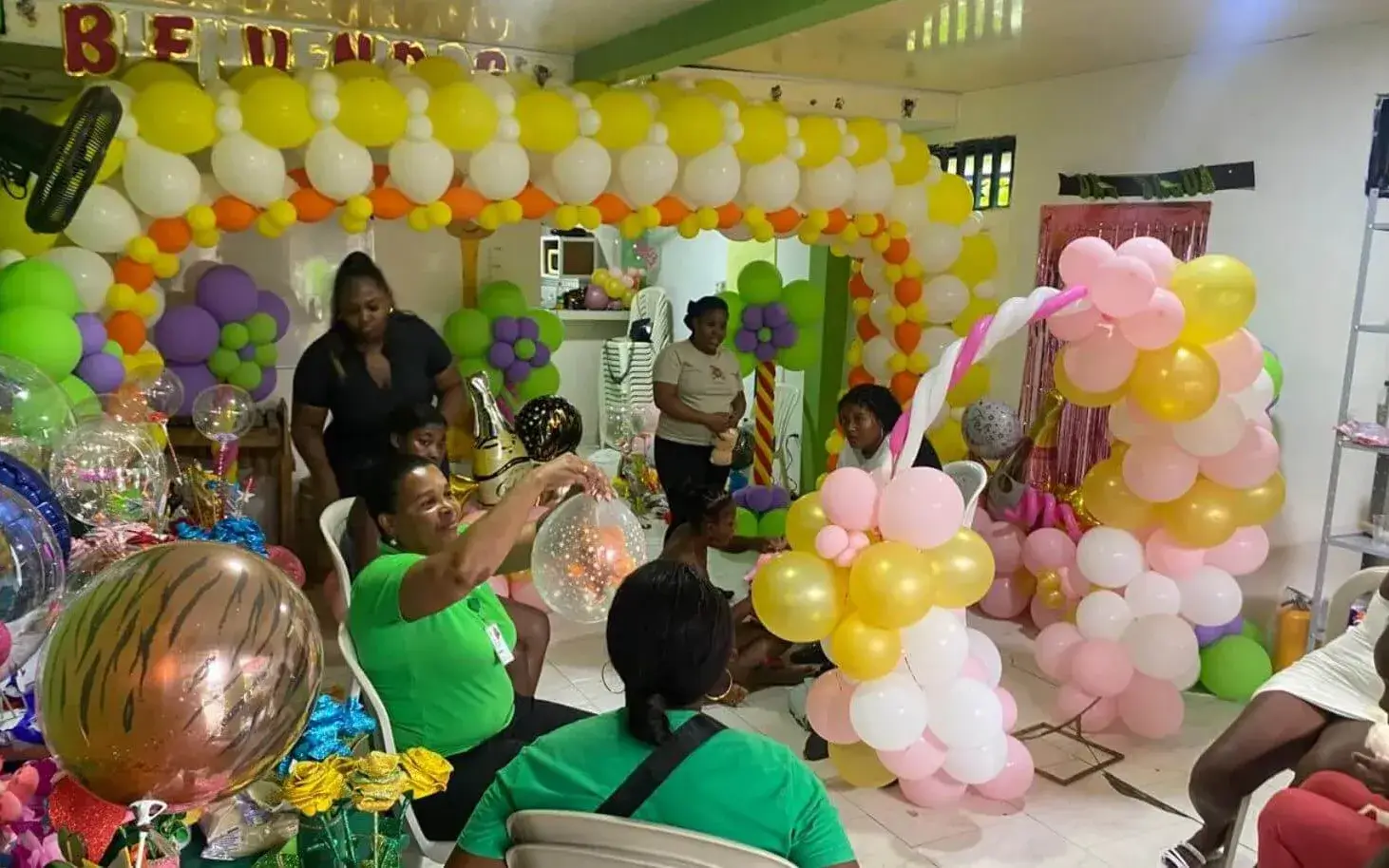The report of the Catalan Delegation in Colombia states the violation of human rights during the Paro Nacional
The Delegation defines Ivan Duque's government as an "authoritarian regime disguised as democracy", as it doesn't guarantee the right to peaceful protest, critical thinking, democratic opposition and information.
The Catalan Delegation in Colombia, promoted by the Taula Catalana per la Pau i els Drets Humans a Colòmbia (Catalan Table for Peace and Human Rights in Colombia, in english) and made up of parliamentarians, institutions and social entities, has published the report 'The violence of the Public Force violates fundamental rights in the protests of the Paro Nacional', after his visit to the country at the end of June. The intention of the Delegation was to verify the denunciations made by organizations and social movements due the repression of the peaceful demonstrations of the Paro Nacional (National strike, in english).
The Paro National refers to a series of protests launched in April this year in several cities and towns in Colombia, with the aim of denouncing the tax increase and health care reform proposed by the government of Ivan Duque.
Accentuated by the disproportionate use of force by the National Police, the mobilizations managed to overthrow the tax reform project, which sought to increase VAT on basic foods, and withdraw the health service reform project, which tended towards privatization and secured the entry of transnational corporations.
But in a context where structural and historical inequalities persist, exacerbated by the impact of the pandemic and violations of the Peace Agreement, the Colombian population is still on the streets demanding their rights. The situation is critical: according to the Confederación Intersindical, since the signing of the Peace Agreement between the Fuerzas Armadas Revolucionarias de Colombia (FARC) and the Government in 2016, nine hundred human rights leaders and three hundred ex-guerrillas who had laid down their guns have been killed.
The report of the Taula Catalana per la Pau i els Drets Humans a Colòmbia states that the country lives an authoritarian regime disguised as democracy with levels of violence by the Colombian state that benefit from absolute impunity. In addition to denouncing that the right to life, integrity,freedom of speech or public assembly and demonstration is not guaranteed, the Delegation makes a careful approach to the repression of protests, denouncing enforced disappearances, urban paramilitarism and sexual violence against protesters.
"The document also includes a lack of guarantees of political and democratic participation, as well as a war treatment of the protests", said Jordi Campabadal, a member of the delegation and a member of the Intersindical-CSC, an entity that is part of the Table. In short, the Delegation stressed the need to ensure the right to peaceful protest as one of the pillars of democracy, to find a negotiated solution to the conflict based on dialogue and to implement the Peace Agreement.
The international response and responsibility
Aware of the international responsibility in the Colombian conflict, the Delegation considers it necessary to focus on what steps can be taken from Catalonia, Spain and the European Union to reverse the situation. It is essential to focus on the Colombian context, but institutions and administrations must also be held accountable for the perpetuation of violent conflict in the country.
First of all, Spain is considered a major supplier of weapons and riot gear to Colombia, and organizations such as Amnesty International and Oxfam Intermon are demanding that it suspend its marketing. In addition, President Iván Duque has been awarded in Spain and has signed business collaboration agreements to benefit reciprocal investment, where many of these Spanish multinationals are related to violations of trade union, labor and environmental rights in Colombia.
Considering this context, the report insists on addressing especially the institutions to review their relations with the Government. "We do not understand what else has to happen in the country for the international context to react and take action", says Campabadal.
It is true that cooperation projects, interventions and reception programs are promoted on a global scale in solidarity with the Colombian population, but these efforts are being thwarted. "It is useless to support the peace process and human rights organizations, but on the other hand it contributes to perpetuating the conflict," added the member of the Intersindical-CSC.









Add new comment